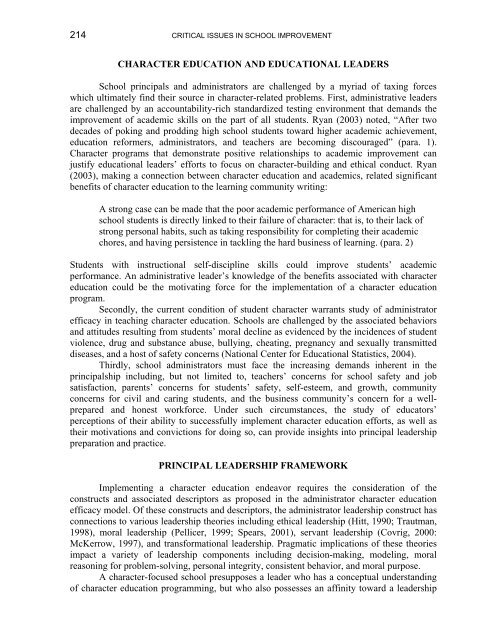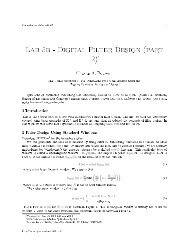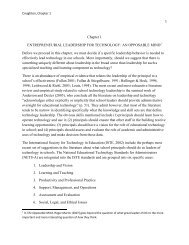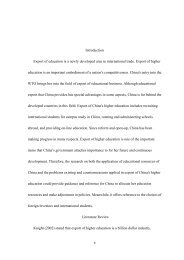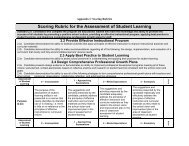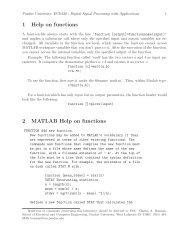Blazing New Trails - Connexions
Blazing New Trails - Connexions
Blazing New Trails - Connexions
You also want an ePaper? Increase the reach of your titles
YUMPU automatically turns print PDFs into web optimized ePapers that Google loves.
214 CRITICAL ISSUES IN SCHOOL IMPROVEMENT<br />
CHARACTER EDUCATION AND EDUCATIONAL LEADERS<br />
School principals and administrators are challenged by a myriad of taxing forces<br />
which ultimately find their source in character-related problems. First, administrative leaders<br />
are challenged by an accountability-rich standardized testing environment that demands the<br />
improvement of academic skills on the part of all students. Ryan (2003) noted, “After two<br />
decades of poking and prodding high school students toward higher academic achievement,<br />
education reformers, administrators, and teachers are becoming discouraged” (para. 1).<br />
Character programs that demonstrate positive relationships to academic improvement can<br />
justify educational leaders’ efforts to focus on character-building and ethical conduct. Ryan<br />
(2003), making a connection between character education and academics, related significant<br />
benefits of character education to the learning community writing:<br />
A strong case can be made that the poor academic performance of American high<br />
school students is directly linked to their failure of character: that is, to their lack of<br />
strong personal habits, such as taking responsibility for completing their academic<br />
chores, and having persistence in tackling the hard business of learning. (para. 2)<br />
Students with instructional self-discipline skills could improve students’ academic<br />
performance. An administrative leader’s knowledge of the benefits associated with character<br />
education could be the motivating force for the implementation of a character education<br />
program.<br />
Secondly, the current condition of student character warrants study of administrator<br />
efficacy in teaching character education. Schools are challenged by the associated behaviors<br />
and attitudes resulting from students’ moral decline as evidenced by the incidences of student<br />
violence, drug and substance abuse, bullying, cheating, pregnancy and sexually transmitted<br />
diseases, and a host of safety concerns (National Center for Educational Statistics, 2004).<br />
Thirdly, school administrators must face the increasing demands inherent in the<br />
principalship including, but not limited to, teachers’ concerns for school safety and job<br />
satisfaction, parents’ concerns for students’ safety, self-esteem, and growth, community<br />
concerns for civil and caring students, and the business community’s concern for a wellprepared<br />
and honest workforce. Under such circumstances, the study of educators’<br />
perceptions of their ability to successfully implement character education efforts, as well as<br />
their motivations and convictions for doing so, can provide insights into principal leadership<br />
preparation and practice.<br />
PRINCIPAL LEADERSHIP FRAMEWORK<br />
Implementing a character education endeavor requires the consideration of the<br />
constructs and associated descriptors as proposed in the administrator character education<br />
efficacy model. Of these constructs and descriptors, the administrator leadership construct has<br />
connections to various leadership theories including ethical leadership (Hitt, 1990; Trautman,<br />
1998), moral leadership (Pellicer, 1999; Spears, 2001), servant leadership (Covrig, 2000:<br />
McKerrow, 1997), and transformational leadership. Pragmatic implications of these theories<br />
impact a variety of leadership components including decision-making, modeling, moral<br />
reasoning for problem-solving, personal integrity, consistent behavior, and moral purpose.<br />
A character-focused school presupposes a leader who has a conceptual understanding<br />
of character education programming, but who also possesses an affinity toward a leadership


